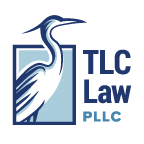The point of filing for bankruptcy is to give you time to get your sh** together and start clean. However, not all debts can be discharged. Further, you might want to keep some debt, as explained below.
Secured debts
Secured debts are debts with an asset, such as a home or car, as collateral. Your mortgage is a secured debt, as is your car note. As part of Chapter 7 (and to some extent Chapter 13) bankruptcy, assets subject to a secured debt are subject to forfeiture and sale. The proceeds of the sale will go to the secured creditors. When the bankruptcy concludes, your secured debt is discharged.
But, in some circumstances, you might want to keep the secured debt. Why on earth would you want to keep debt and not have it discharged? Because keeping that debt will ensure you have the underlying property, your house or car for instance. This is a tricky choice to make and one that is not always available (see our blog post on exemptions for more info). But, when the law permits it, sometimes it’s worth keeping certain property and living with the debt attached.
Non-dischargeable debts
Certain categories of debts are categorically denied from discharge in both Chapter 7 and 13 bankruptcy, including:
- child support
- alimony payments
- restitution payments for breaking the law
- some tax debts
A second category of debt is debt that is rarely discharged; it includes student loans and regular income tax debt. For these categories to be discharged, the debtor must urge the court for discharge. In reality, however, debtors have had very little success with these arguments.
Debts not discharged due to debtor misconduct
A debtor’s actions can prevent him from obtaining a discharge of certain debts. Fraudulent actions and perjury can raise the ire of the court and prevent a discharge. This is why it is of utmost importance, and why we stress repeatedly and repeatedly to our clients that they must be open, honest and complete when disclosing assets and debts.


